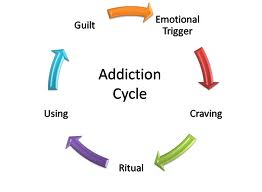Emotional Dependency as a Block to Addiction Recovery
Author: Bill Urell
Emotional dependency is a concept that covers two things people active in addiction or in early addiction recovery really aren’t very good at, emotions and relationships.
I do not think that it is any stretch of the imagination to say that anyone who is alcohol dependent or addicted to drugs has an emotional dependency not only on them, but on relationships also. Most addicts use drugs to kill pain emotional or physical, or to feel better about themselves.
One of the most common reasons cited for relapse back into alcohol or drug use from people who are inactive in addiction recovery is difficulty with relationships. This should come as no surprise.
“It is our ability to appropriately identify process and express emotions that determines the quality of our relationships.”
A typical mindset of one who is emotionally dependent is that it is their partners job to “know” what they are feeling and tend to it without being asked. A person who is emotionally dependent generally has feelings of low self-esteem, fear, or anger. As well as using chemical substances, they use other people to try to “make” them feel good.
A relationship that is built on the basis of controlling a partner, fulfilling our expectations, and behaving the way we want them to is built on shaky ground. There is a certain arrogance about this attitude in that the dependent person is right all the time, and it is the duty of the partner to fulfill their expectations.
Often when the partner does not fulfill these expectations one of several things may happen, all of which are indicative of dysfunctional relationships.
1. The dependent will try to force or control the behavior of their partner to conform to their wishes or expectations. This leads to conflict, anger and emotional blackmail.
2. When things do not go as expected, the person can withdraw, become emotionally unavailable, or simply move on to a new relationship.
3. An emotionally dependent person can also become ‘put upon’, assuming of victims stance, or engage in blaming.
There is an old axiom in addiction recovery not to engage in a new relationship within the first year of recovery. I believe this to be a wise course of action, because at that early phase in recovery one is usually bringing old dysfunctional inabilities to handle emotions and old ideas of relationships to the match.
Such relationships do not enjoy a high success rate; some would say they are doomed to failure. The failure of the relationship usually triggers emotions that are unable to be handled successfully so early in recovery.
Emotional independence occurs when you realize you cannot control, nor is it your responsibility to manipulate other people’s emotions. When you take responsibility for your own emotional growth and learn the necessary skills to identify and process your emotions you are truly on your way to overcoming emotional dependency in addiction recovery.
Article Source: http://www.articlesbase.com/fitness-articles/emotional-dependency-as-a-block-to-addiction-recovery-654840.html
About the Author
Free Bonus: And now I would like to invite you to discover even more addiction resources. You may claim our Free, massive Addiction Recovery Help Guide. To gain instant access, visit us at: http://addictionrecoverybasics.com/






